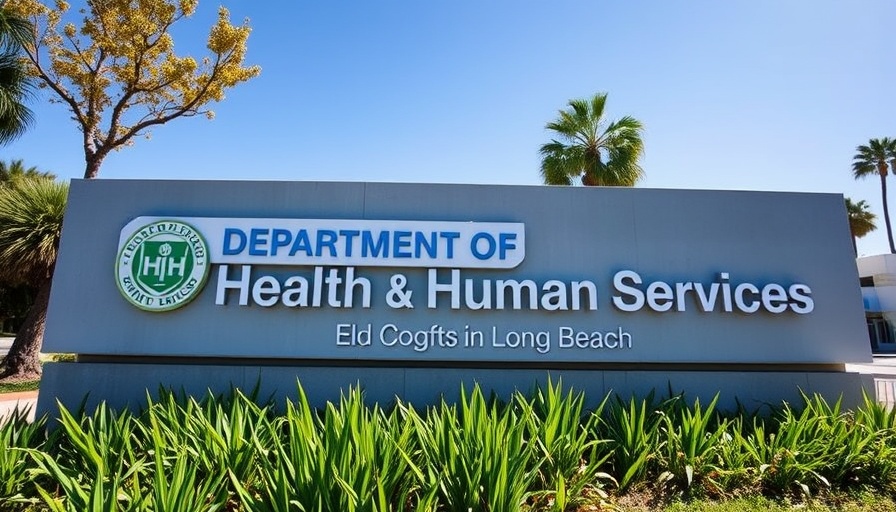
Long Beach's Critical Steps Back in HIV Prevention
In a concerning development for public health, Long Beach has ceased its free testing services for HIV and STIs due to significant cuts in federal funding. This change, which took effect last month, is expected to have a detrimental impact on the city's ability to manage the spread of disease, reversing years of progress. The $1.3 million reduction impacts several vital services, including the mobile testing unit and treatment programs at the Ron Arias Health Equity Center.
Understanding the Consequences of Federal Cuts
Dr. Anissa Davis, the health officer for the city, expressed profound disappointment regarding the funding cuts, viewing them as a serious public health setback. Just as the city began to see improvements in testing rates, the discontinuation of these free services could lead to increased transmission rates of HIV, which is particularly concerning as Long Beach records one of the highest per capita rates in California.
The Rising HIV Crisis: A Closer Look
As of May 2025, more than 3,900 residents in Long Beach are living with HIV, and over 500 new diagnoses were reported within the last five years. The population most affected predominantly comprises males aged 30-39, highlighting a demographic pressing for immediate intervention and support from local health services.
The Role of Community Health Services
Despite these challenges, the city's Sexual Health Clinic intends to continue offering testing, although at an income-based pricing structure. Dr. Davis emphasized the importance of driving public awareness about available services, even as free options dwindle. “It’s crucial that our community knows where to go for reliable, anonymous testing,” she remarked.
Insights Into Future Public Health Strategies
This situation points to an urgent need for advocacy and potential policy shifts at the federal level to safeguard public health initiatives. As cities like Long Beach work diligently to combat the spread of HIV, funding streams must be secured to support testing and treatment efforts effectively. Public health experts agree that reducing financial investment in these areas can have lasting repercussions on community health.
Public Response and Community Support
The end of free testing not only affects those diagnosed but also reignites discussions about funding for health services amid an ongoing public health crisis. The community's involvement in advocating for more robust health funding could serve as a catalyst for change. Moreover, as funding dwindles, local organizations may need to step up to fill the gaps left by governmental support.
Conclusion: A Call to Community Action
As Long Beach faces these challenging shifts, it becomes ever more essential for residents to engage with local health initiatives actively. Staying informed and supporting advocacy for public health funding could make a significant difference in the ongoing battle against HIV and STIs in the community. Let's work together to ensure that essential health services remain accessible to all.
 Add Row
Add Row  Add
Add 




Write A Comment